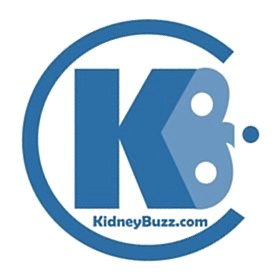© ALL CREDIT TO THEIR RESPECTIVE OWNERS.
The news reported, "Potentially Catastrophic Hurricane Strike With 'Sandy-Like' Storm Surge For Parts of Florida, Georgia, South Carolina." Similarly, news outlets have announced that California is due to experience a massive earthquake. According to the National Aeronautics and Space Administration (NASA), "Temperatures, rainfall, droughts, high-intensity hurricanes and severe flooding events all are increasing and projected to continue." It is clear that extreme weather events and natural disasters are on the rise, and putting the already vulnerable Chronic Kidney Disease Community at additional risk. For instance, during Hurricane Sandy, five regional Dialysis Centers closed because they lost power. While attempts were made, 15% to 20% of patients could not be reached to be directed to other open Dialysis Facilities in the region, and one patient died because of a lack of Dialysis. This is a serious issue! Chronic Kidney Disease and Dialysis patients may use the following tips to (1) identify backup Dialysis Centers should their primary facility close, as well as (2) limit damage to their health and improve chances of survival during a catastrophic event.
Recommended Reading: Are End-Stage Renal Disease Patients Prepared for a Natural Disaster?
A report suggested that of the 357 Dialysis patients surveyed, 94 patients (26%) missed approximately two (2) Dialysis Treatments during a natural disaster. This can be absolutely devastating. Of the 5,849 Dialysis patients affected by Hurricane Katrina in 2005, 148 died within a month after the storm. However, this does not have to be your fate and the following tips may help:
1.) What happens if my Dialysis Center is closed?: Patients can contact the Kidney Community Emergency Response Coalition (KCERC) national disaster hotline at (888) 33KIDNEY and learn which Dialysis Facilities are functioning and which can take additional patients. Patients may also contact any End Stage Renal Disease (ESRD) Network or the KCERC website for open/closed unit status.
2.) The Emergency Room May Not Help.: During disasters, Dialysis Services in hospitals and emergency rooms usually become overwhelmed, and treatments are delayed or curtailed. In the case of a catastrophic event, Dialysis patients may wait hours only to be turned away, wasting valuable transportation time. Hence, try to evacuate your disaster area as soon as possible, and correspond promptly with the ESRD Network, KCERC or your Healthcare Team to find available Dialysis Facilities in safe zones.
3.) Contact your Transplant Center.: Whenever it is safe, Dialysis patients who are on a Kidney Transplant Waiting List should notify their transplant facilities of their relocation and contact information should it be different.
4.) Returning home after the disaster.: Before returning home, Dialysis patients should check with their Dialysis Facility to be sure that their Dialysis Centers are functioning, other medical services are available (hospitals, clinics, and pharmacies), regular transportation is available, and utilities are back on.
5.) Kidney Transplant Patients and Immunosuppressant Medication.: Transplant patients should continue their usual medications and try to avoid trauma and stress from impacting their Transplanted Kidneys. If possible, try to make it to a safe area as soon as you can. Remember to grab your medication because stopping immunosuppressive therapy for even one or two days may result in Kidney Rejection.
6.) The Road to Safety.: If a Chronic Kidney Disease patient is on the road to safety during an evacuation then he/she should try to travel with family members or a buddy (if possible), have a map handy, and contact the ESRD Network or KCERC hotline ((888) 33KIDNEY) to identify open Dialysis Facilities.
Recommended Reading: Tailored Foods For Chronic Kidney Disease Patients That Last A Long Time In Case of Emergency
How do you stay safe during natural disasters? Share your experience and insights with the over 48,000 Friends who have liked KidneyBuzz.com on Facebook (click here). Also, follow the over 120,000+ monthly individual viewers who visit KidneyBuzz.com regularly for the latest daily news and information which teach those with Chronic Kidney Disease, Dialysis, Kidney Transplant, Diabetes, and Hypertension how to better manage and improve their lives. Erica Ashley Jenkins (Dialysis Nurse) said, "Hello I just wanted to let you know I work in a dialysis clinic and over half of our clinic reads this page, we enjoy everything you put on and love to have new information. My patients are a very grateful."




